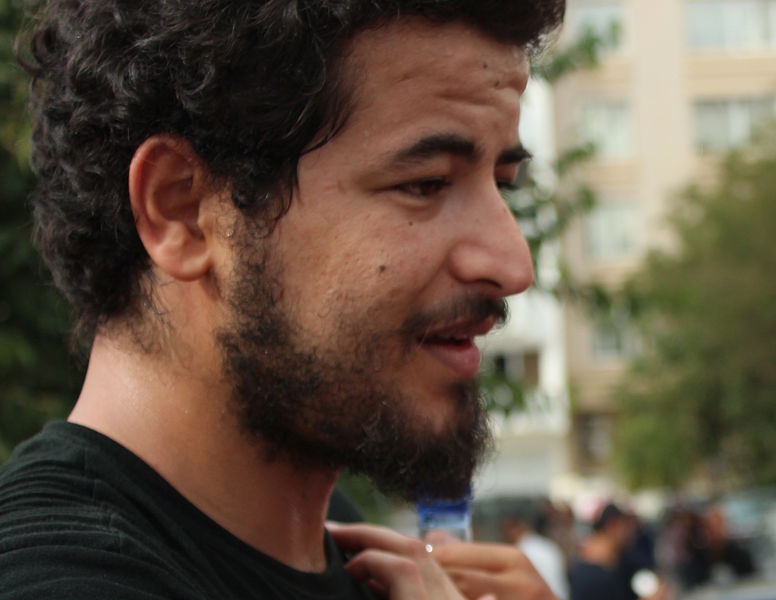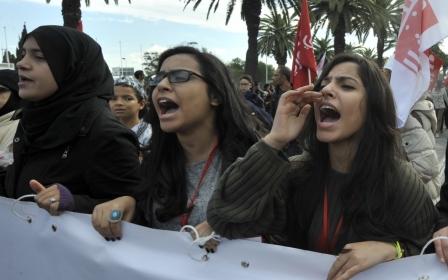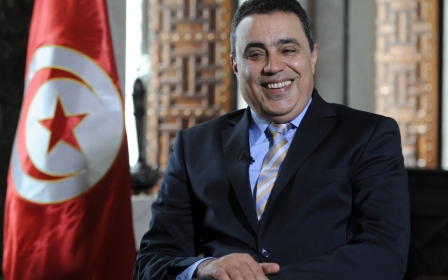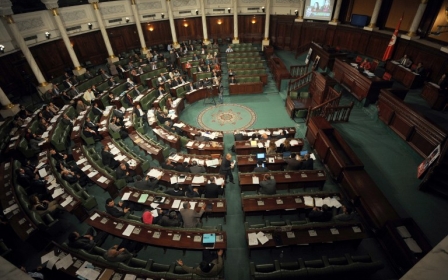Drugs charges dropped against prominent Tunisian blogger

A prominent Tunisian blogger who accused police of fabricating drugs charges against him walked free from court on Friday after a judge threw out the case against him.
Azyz Amami, who was politically active during the 2011 uprising and has been critical of the police both during and after the revolution, was arrested along with a friend on 12 May for possession and consumption of drugs, a charge that can carry a five-year jail term.
Prior to the judge dismissing the case, Amami told the court: “I had no narcotic substance in my possession, I had nothing at all." He added, “I have been arrested and attacked” by the police. He refused to take a drugs test, saying it would “undermine his integrity”, and confirmed to the judge that he believed the police had planted drugs on him.
Defence lawyer Bassem Trifi said Amami had rejected the drugs test because he did not trust the police not to tamper with the results, A fellow defence lawyer said by throwing out the case the judge had demonstrated independence.
“The justice system showed that Azyz Amami is not a criminal,” Ghazi Mrabet told the AFP. “A part of that justice system has shown that it is independent,” he added.
Amami helped organise and took part in demonstrations against former president Zine El Abidine Ben Ali in 2011. He was arrested along with hundreds of other anti-regime protesters during the uprising and has continued to be critical of the police in his popular blog.
Activists have accused authorities of using drugs charges as a pretext to lock up Amami for his campaigning activities.
“The case was a big lie and the judge dismissing it proves as much,” said Lina Ben Mehnni, a Tunisian human rights activists.
“A few days before his arrest Azyz took part in a television show in which he discussed many things including how authorities have targeted young protesters who took part in the revolution for arrest,” she added.
When asked if the court will is likely to follow up on Amami’s accusations and investigate the police for allegedly planting drugs, Mehnni was not optimistic.
“Azyz was beaten while he was detained and when defence lawyers told the judge this, he just ignored them,” she said. “So, I don’t think the court will investigate the police to establish whether they did plant drugs on him but it seems the defence lawyers will request this anyway”.
Groups of his supporters had protested his detention, with some facing arrest themselves after a protest led to minor clashes with police that left several people injured.
Amami was greeted by supporters on Friday, with many taking photos and sharing their joy at the news of his release on social media.
Drug laws are very tough in Tunisia, with those found in possession of narcotics facing prison sentences of between one and five years along with a fine of 3,000 dinars ($1,850). There are additional penalties of six months to five years in prison for those present during drug use.
A campaign group, Al Sajin 52, has criticised the drug laws saying they have led to overcrowding in Tunisia’s prisons and called for reform to “save the country’s future generations”. The UN High Commissioner for Human Rights has reported that 53 percent of Tunisians in pre-trial detention are held on charges relating to drugs, recommending penalties be reformed to include fines and suspended sentences for initial offences.
Human rights activist Mhenni says “many young Tunisians have lost their future because of the drugs law” and accuses authorities of using it to “get rid of their opponents”. She has called on the government “to urgently revise the law”, something authorities say they are considering.
Earlier in May, Prime Minister Mehdi Jomaa announced his support for reforms to the law, saying it was “no longer in tune with the times”, adding “we are in the process of amending so that it conforms to new realities”. It is not clear what form the amended legislation will take but health and justice ministries said changes would “humanise” the approach taken to narcotics use.
Middle East Eye propose une couverture et une analyse indépendantes et incomparables du Moyen-Orient, de l’Afrique du Nord et d’autres régions du monde. Pour en savoir plus sur la reprise de ce contenu et les frais qui s’appliquent, veuillez remplir ce formulaire [en anglais]. Pour en savoir plus sur MEE, cliquez ici [en anglais].




